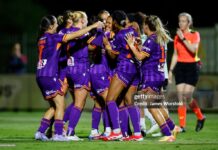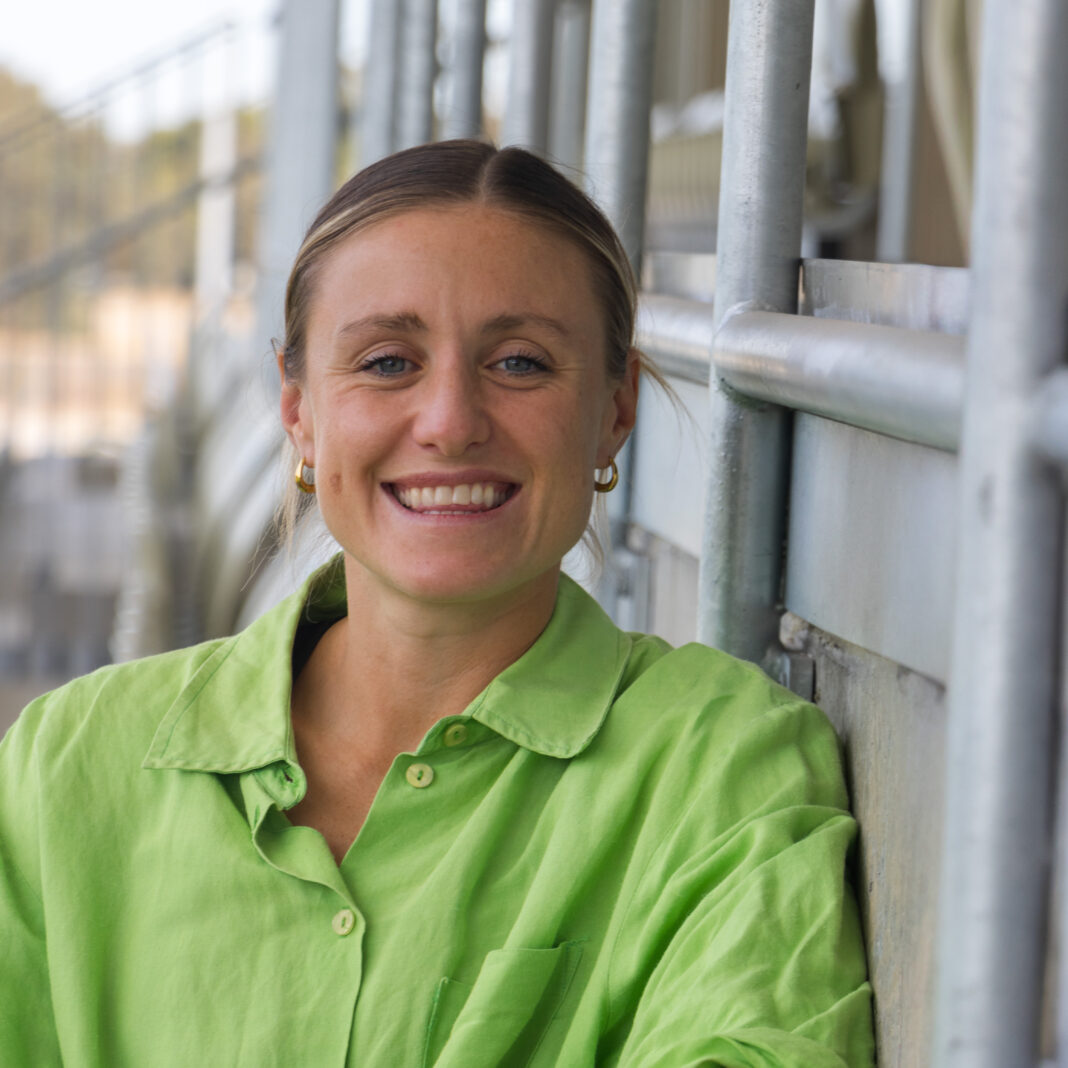
The recent announcement by Perth Glory’s Tash Rigby that she has retired from professional football brought the curtain down on a career that spanned eight seasons and 116 games, the second-highest number of appearances in the club’s history.
However, her retirement from playing won’t end her association with the game as she is now Football West’s new Manager – Female Football and Advocacy.
Beyond 90 recently sat down with Rigby and discussed her career, her role with the PFA and her new role with Football West, but we first asked her how it feels to no longer be described as a professional player.
“Yeah, it’s very hard to swallow. It’s a big shift in identity, and it wasn’t a decision that came easily but it definitely feels right for me now. I think it’ll really hit home when August and September come round and I’m not involved in the pre-season.”
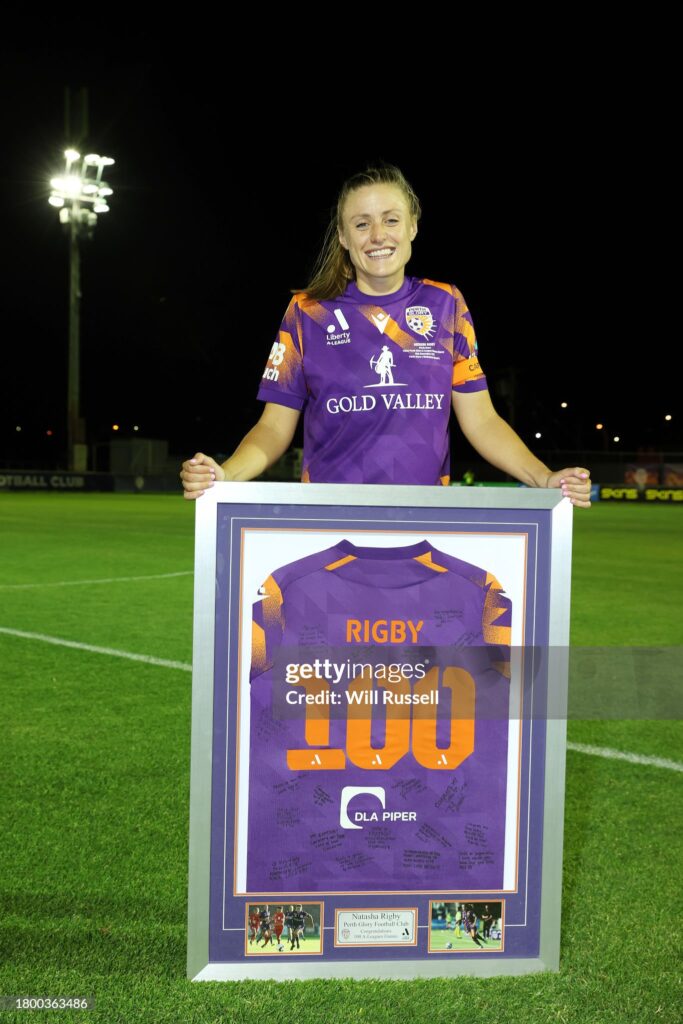
Her love for Glory was clear every time she took the pitch for those 116 games and we asked Tash to highlight the differences she found when moving into the professional environment from her (then) State League club, Queens Park, and also the challenges she faced as an ALW player.
“I remember the biggest difference was the volume and the intensity (of training). I think it was 5 times a week, and I’d never trained that many times and at that level. The intensity of training (was high) especially with some of the calibre of players that were in at that time and our internationals, they really raised the level massively and that’s what really stood out the most.
“(When I was given a contract) I think it was $1500 for the whole season and I remember thinking that’s so great. I’ve got extra money but it wasn’t even enough for fuel, so I was never going to give up my work. (This meant) I worked, played and trained simultaneously for six years and that ended up taking a massive toll on me and my mental health. I was having to balance so much, although balance isn’t really a good word because I wasn’t balancing, I was just trying to squish in as much as possible.”
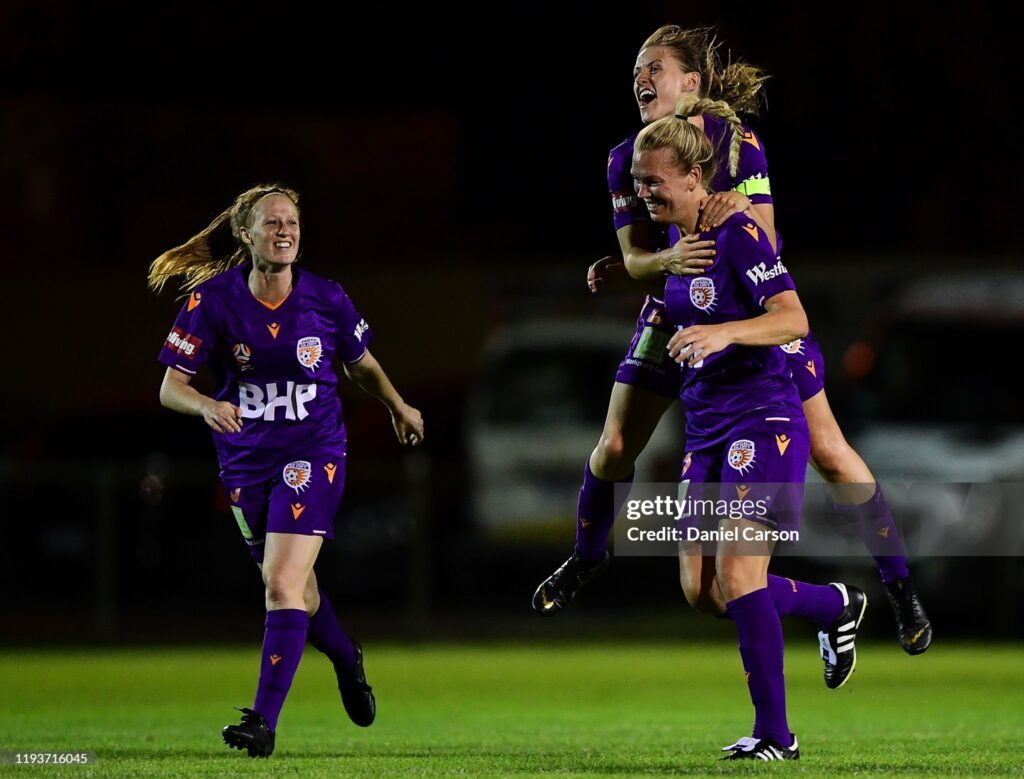
Having played eight seasons with Glory, Rigby experienced the highs of appearing in Grand Finals and the lows of going through a season without registering a single win, so we asked her why she felt there had been such wild swings from season to season:
“We had very different squads each year and I think that’s still the nature of the A league although we are getting a little more consistency. I think last year we retained the most players in the whole A-League and that’s what comes when you’re building sustainability, but there was a lot of fluctuation and I think that showed in the results.
“Success comes from team cohesion and chemistry and as our pre-seasons were very short you don’t have much time to build that. Sometimes, you’re lucky and it just clicks and sometimes it doesn’t and that translates to how you play, your style of play and how long you take to get into a rhythm, and with the short seasons you could find your rhythm halfway through and then it’s too late to make finals.”
Perhaps the hardest period of Rigby’s career was the two seasons of the COVID pandemic, 2020-21 and 2021-22. Alex Epakis took over at the beginning of 2020-21 and not only had to contend with a new squad but also COVID and in 2021-22 the squad was essentially based in NSW for the whole campaign so we asked her about both:
“Alex basically walked in only a week or two before we were supposed to start, and he was just given a squad and then he looked to sign who he could, and that was a tough, tough season but there was a lot of positive camaraderie that year, which was good because we needed that. Nothing else was going our way, but at least we made some good friendships out of it.
“I think we did well in the following season when we were away from home. One thing that I think really benefited us was the travel, because we were only having to go up and down instead of across, and that actually helped us. (Being) in the hub, we were able to settle in and really just focus on football. Kim (Carroll), Sessie (Sarah) Caroll and I were all still working which we were able to do from the apartment, but for everyone else it was like a little lock-in vibe and it became an us against them siege mentality.”
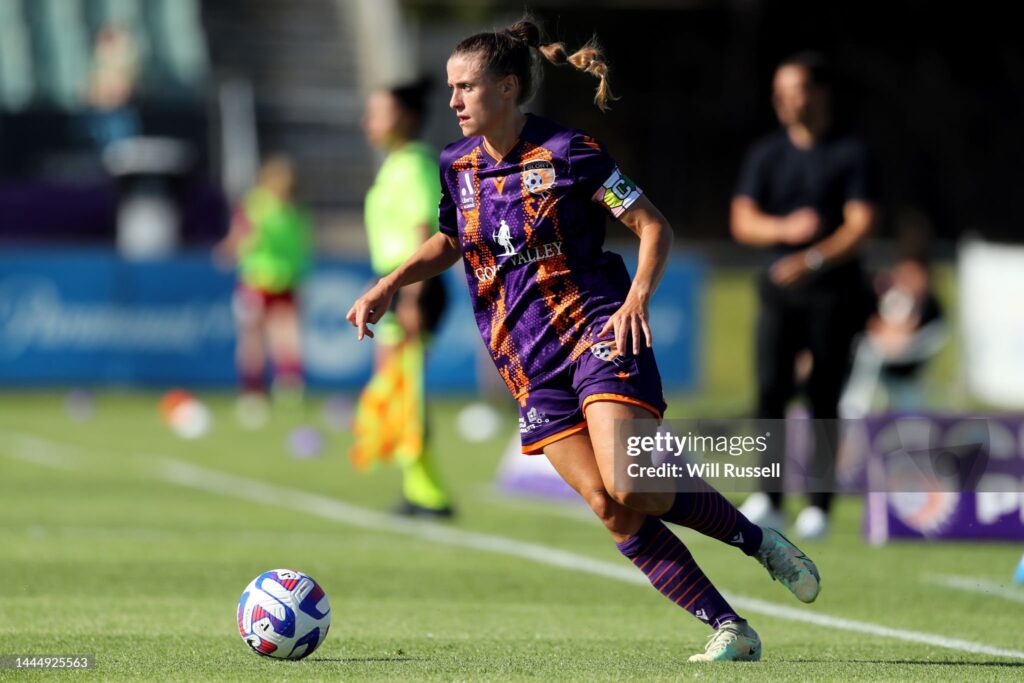
The second season under Epakis has, so far, been the closest Glory has come to playing finals football since they went to the Grand Final in 2019. Last season started very brightly for them and they won their first four games, but then failed to win a single game after that and finished in 10th spot. We wondered if Rigby had any insight into what had gone so wrong:
“We started so strong and we were able to take it to the best teams, but in my opinion, I still don’t think we were playing to our potential, even though we were winning games. But then teams figured us out, and we really struggled to adapt and problem solve.
“I (also) feel we lost our identity. I’ve always known our style of play and I’ve always known our team’s identity, whereas last season there wasn’t a clear identity, a clear style and it really felt like that it didn’t have the same heart that the team has had previously either.”
We then moved on to discuss the evolution of the A League itself and we asked her if the move to a full home and away season had been a success:
“I enjoyed it, and I’ve always said that I wanted to be a part of a home and away. I really wanted that to happen in my time playing to be able to experience that because having the short season means you can’t build momentum.
“(It was bad for us) but I wouldn’t change it because I think if we want to be considered a professional league that’s what is necessary. I think that what we now need to see is everything else catch up. We’re expecting our players to commit nine months of the year so we need to move to a more professional structure, put more investment into everything when it comes to the women’s game, broadcast quality, branding, promotion, and the upskilling of everyone involved.”
As well as being a leader on the field, Rigby was also heavily involved with the PFA and she chatted about her role with the organisation and also the importance of letting players have a voice in ways to improve the game for the future:
“When I first joined Glory Shawn Billam was a delegate which is the conduit between the team and the PFA. There are usually two or three delegates, so the responsibilities don’t fall on one person. They essentially communicate all the information that comes through about things like player rights and collective bargaining agreements, and recently I became part of the executive.
“It’s been amazing in my career to see the establishment of the CBA, because in the beginning I was only making about $1000 per season and then in the second or third year that I was playing they bought in the minimum wage.
“(The PFA) also improved our rights to medical access and everything in terms of what our facilities should look like, travel arrangements, how many staff we should have in the team, access to a doctor and things like that.
It was amazing to watch that come in and that is built on every year. In 2026 the current CBA ends and earlier this year all the delegates got together as a part of the PFA to discuss what we want in terms of the next collective bargaining agreement.”
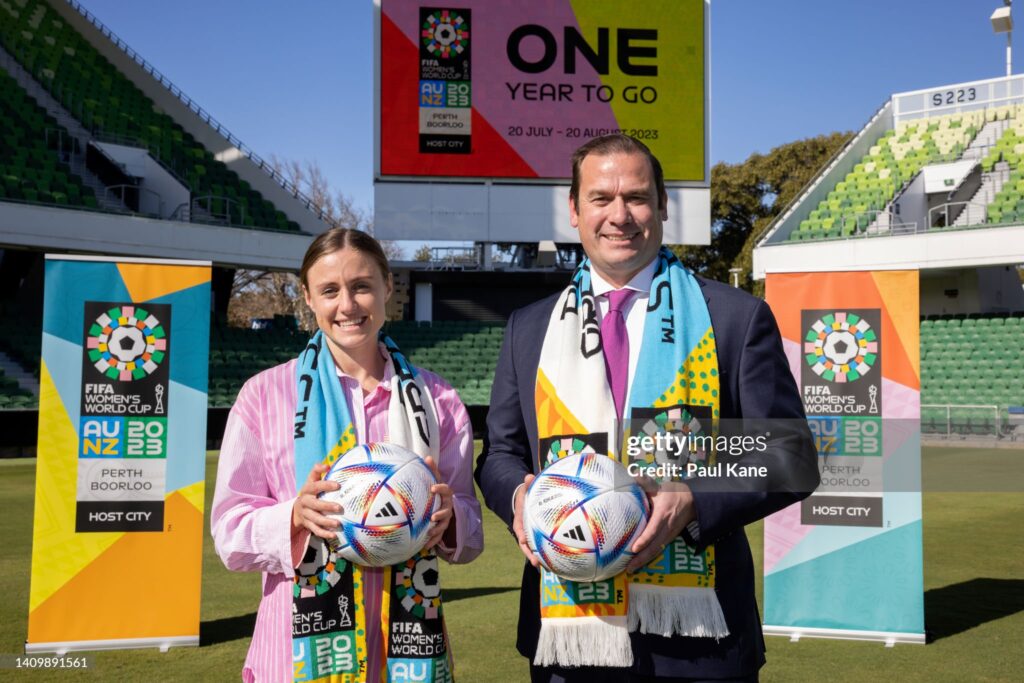
Finally, we discussed her new role with Football West and what she is hoping to achieve in it:
“I’ve come on board as manager of female football and advocacy, which was the most perfect timing ever to come up at this time. I knew the previous Manager (Sarah Du Plessis) quite well and we worked on a lot of things together. She was fantastic in the role and I always thought it would be a cool job to have.
“Essentially what I’ve been doing in the three weeks I’ve been here is taking a look across all the departments in Football West and chatting to everyone in their different silos to find out where they think the biggest gaps are so that I can look to identify where I can make the most amount of change and where we need support.
“After the World Cup Football West received a legacy grant which has certain criteria and deliverables that need to be met that are all related to how we can grow the game across the female space. That’s an amazing place to start for me because it’s across all elements of female football from supporting our referees, to upskilling our female coaches and going to the Community level clubs and seeing what they need. We’ve seen 3000 extra girls sign up this year, so how can we help clubs create positive experiences for these girls so they stay involved and we don’t lose them.
“We also have our State and NTC programmes as well as the elite pathway which we want to make the best we possibly can. So there’s so much to do in the female space and right now what I’m trying to do is figure out the big rocks and try and make change.”
Last weekend Football West held its annual Regional Festival of Football and Rigby travelled to this years host town, Geraldton, to take part:
“I just love going to the regions and I think taking four teams out and holding games there was fantastic. The turnout was great with lots of people watching and it was good to go out and engage with the community.
“We have a CPO (Community Participation Officer) there and they’ve just run a women in leadership workshop and development course for their female administrators, so it was great to meet and chat with her.
“We’re seeing massive growth in the regions as well so it’s on me to make sure that they’re supported as well.”
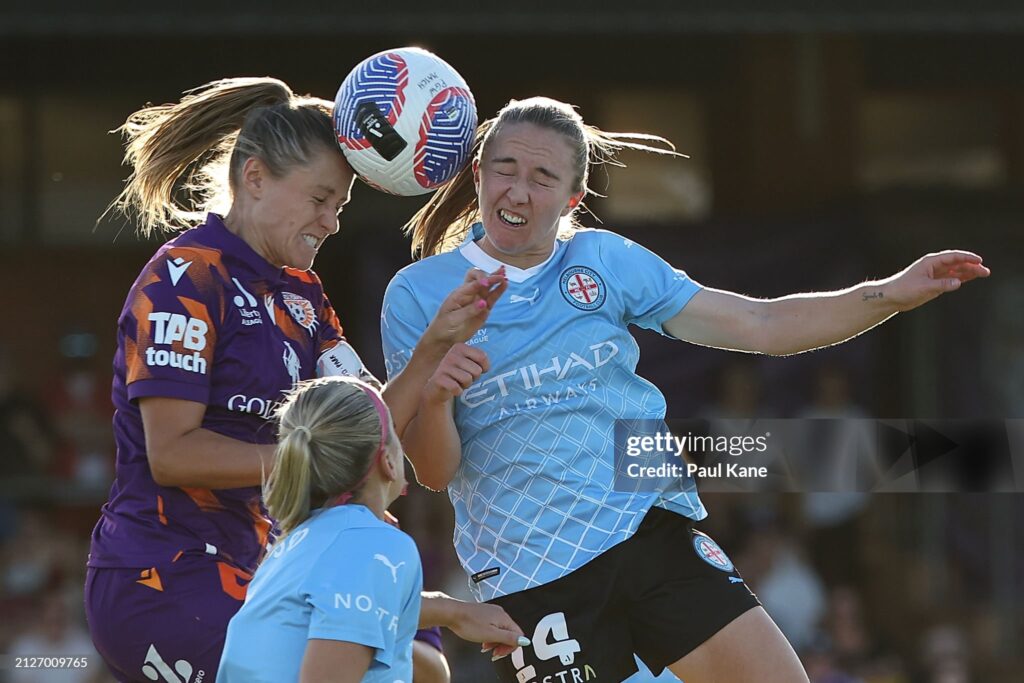
The legacy Rigby has left with Glory is assured, and there is no doubt she will tackle her new role with Football West with the same 100% commitment she showed on the field.



